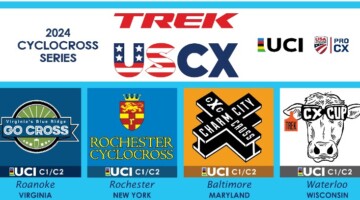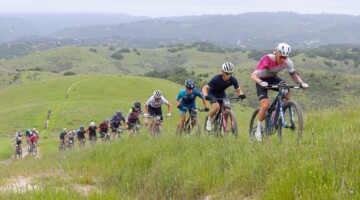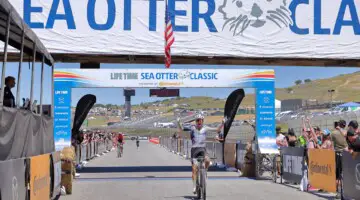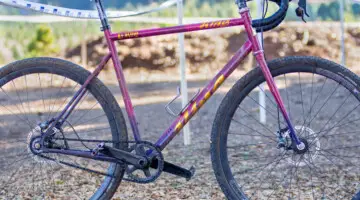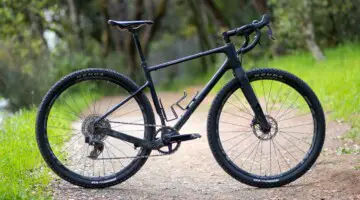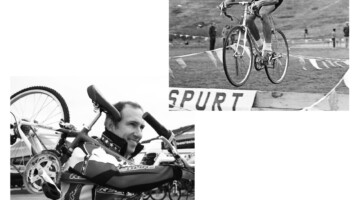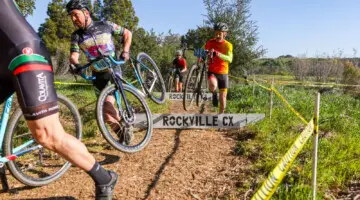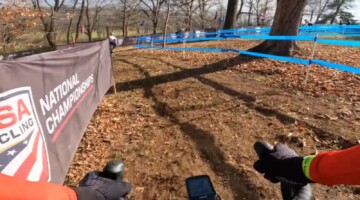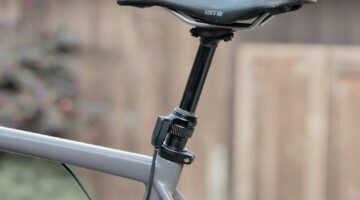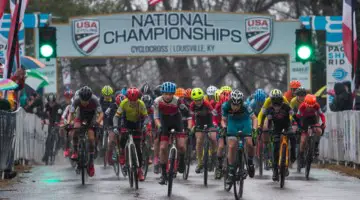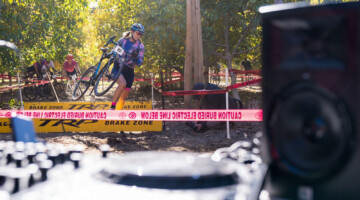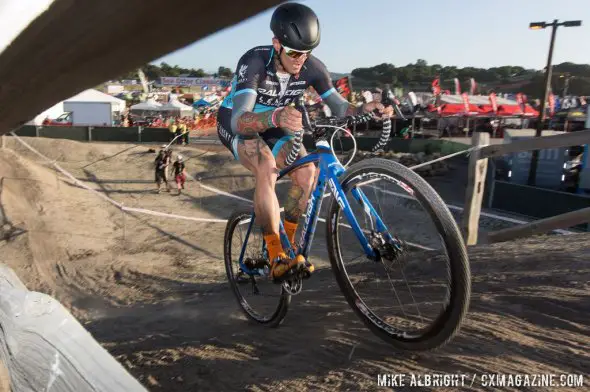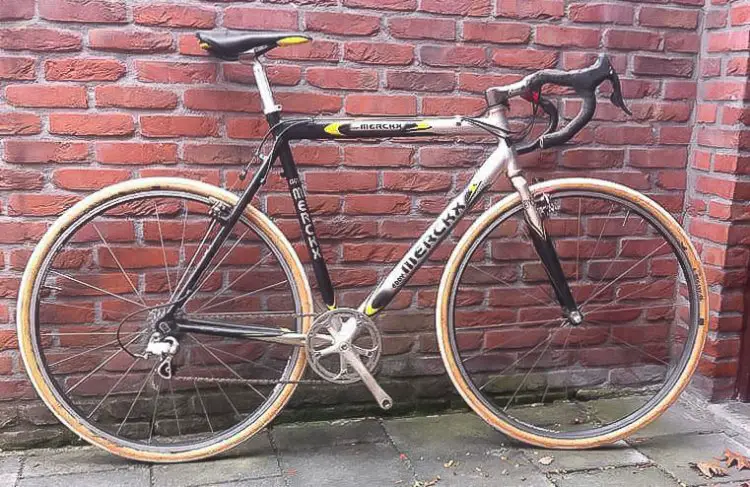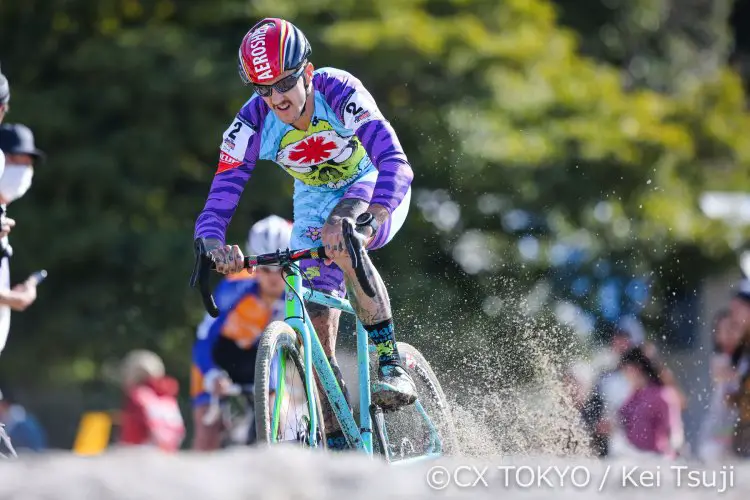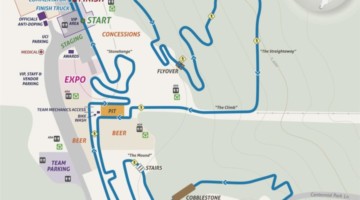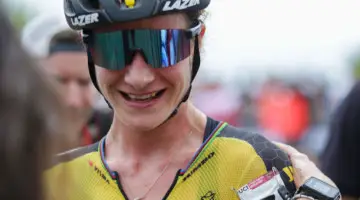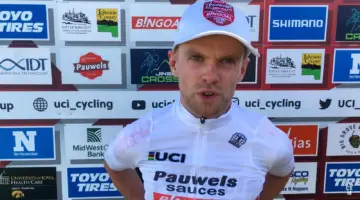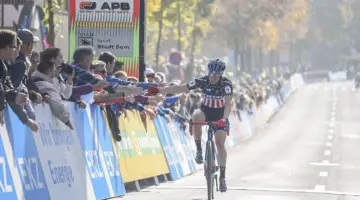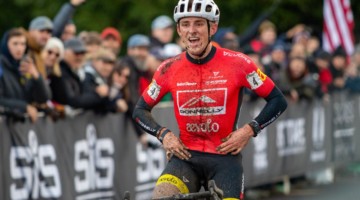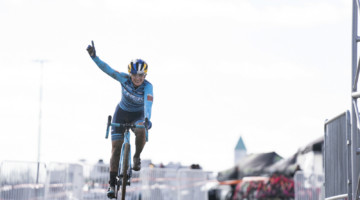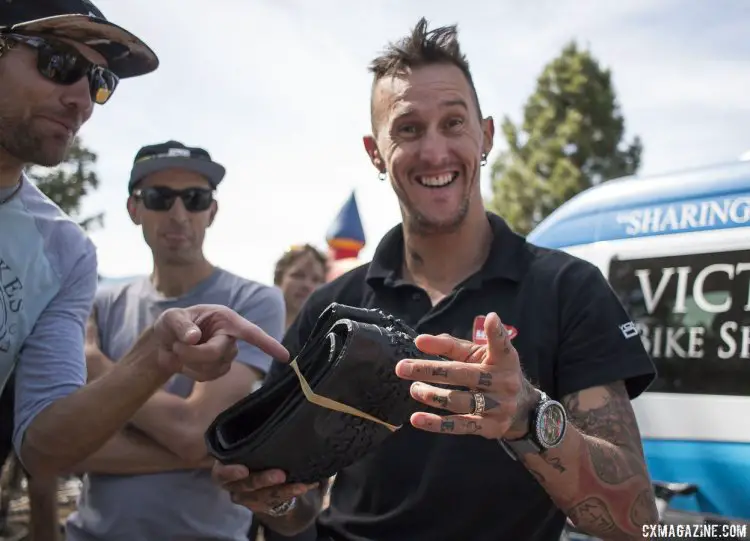
File photo of retired pro Ben Berden from last year’s 2015 Lost and Found gravel race. Berden hopes to be back this year. © Cyclocross Magazine
It’s always great to get a chance to catch up with professional racers and see what they have going on outside of the season and even outside of cyclocross. That’s especially true with riders that are leaving the professional racing ranks and taking new career paths.
We spoke with Ben Berden recently and talked with him about his time as a racer, upcoming rides in the Tour of Flanders and other iconic road races, and future plans now that he’s no longer riding professionally.
Cyclocross Magazine: Ben, thank you for making some time in your schedule to speak with us. We know you’ve been busy lately. How’s it going?
Ben Berden: Absolutely. I just walked in from a 4-hour training ride.
CXM: Wait? Aren’t you retired?
BB: [Laughing.] Professionally, yes. But I’m still riding my bike and staying fit. I’m leading some riders this weekend at the Ronde van Vlaanderen sportif. It’s 220k, and I’ve put on 7 kilos in 3 weeks and am up to 78 kilos. I’ve been doing a lot of crossfit, but for the ride I’ve got to do some on the bike training!
CXM: Wow. How did riding the Flanders sportif come about?
BB: Go4Cycling tours out of Belgium. I know the guy that runs the company as I used to race with him and I helped a little last year with some one-day events. He knew I was going to be in Belgium and we got together and talked about me taking part. I’ll also be doing Roubaix. That’ll be hard. I don’t really like the cobbles! And I’ll likely be riding the Giro and maybe the Tour later this year.
CXM: Those are the types of rides that are on many cyclists’ bucket lists, ours included. What else are you doing professionally?
BB: I’m working for WCup, A Belgian sports nutrition company [Ed. note, his 2015/2016 sponsor]. I’m still training a little and I may race here and there, but I’m not a professional anymore. With WCup we want to go to the US market more. So I’ll be in a sales/promotion role and that may see me racing some too as part of that.
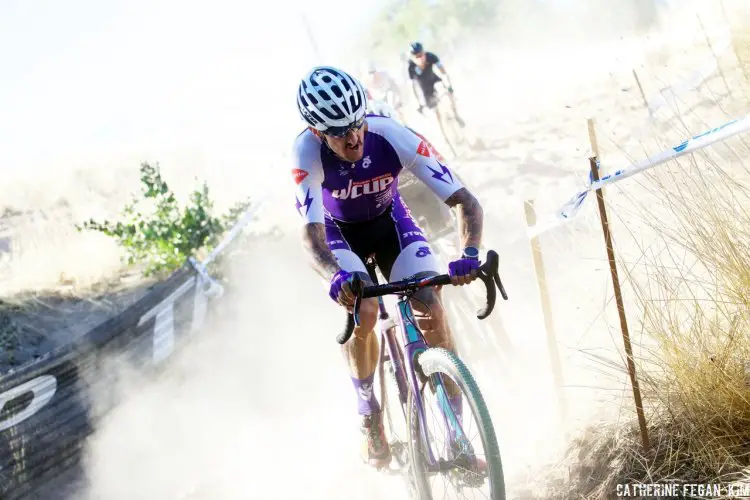
Ben Berden (Wcup Stoemper trp) showing us all how it’s done. © Catherine Fegan Kim / Cyclocross Magazine
CXM: Speaking of racing, it’s often remarked that European cyclocross racing is so very different from US racing. And It’s a question you’ve likely been asked hundreds of times. But having raced so much in the US, and with the US scene growing to include events like the World Cups that draw top European racers, what gap do you see between the racing overseas and here, and is it closing?
BB: It’s just a different scene. In Europe there are a lot of spectators 10,000 to 40,000 depending on the race, and most don’t really care too much about the race itself. They come for the party. It’s really a big event. Like people in the US going to the Super Bowl.
In the US people at the races go to race and then stay to watch. Everyone there knows about the racing. There’s also no fee to spectate in the US like there is in Europe. The thing about the US races that should help grow the spectators is that many are in parks close to town. But in Europe, everyone grows up with it. It’s a national sport.
Still though, the US scene is unique. Four or so years ago I was in Seattle and I saw 120 people in a singlespeed race, and I had never even seen a singlespeed race. That was amazing.
And the US can be proud that they take care of women racers well. Europe is behind for sure, like five years. The level of respect is lower in Europe. Look at Elle Anderson. She’s here working hard trying to make it work, and it’s not easy. She could have it much easier in the US because the scene is more supportive.
CXM: In your experience is there a general perception of the quality of US cyclocross racing in Europe?
BB: Generally the US courses are seen as too easy. There are no technical descents for example. The courses are built for everyone to race. In Europe the courses are difficult even for the pros. You have these very technical descents where the pros are even crashing. The US promoters could make elite races courses harder, some do, but more could be done.
For example, without top fitness on some US courses I can gain seconds here and there because of technical riding skills, like heading over barriers, against another rider in the US. If the courses were harder, I wouldn’t necessarily be there to be able to make such gains.
CXM: You’ve ridden carbon and aluminum bikes over the last handful of years. Disc brakes and cantis, thru axles and quick release, electronic and mechanical. Many of us obsess over equipment, but yet we see plenty of racers winning on canti brakes, quick release axles, mechanical drivetrains. What role do you think these specific equipment differences and choices plays in terms of performance? Can you share any examples of times, if any, you felt your racing results were held back by your equipment?
BB: I never felt a disadvantage over equipment choices. I was lucky in that I always had the stuff I wanted to use. A carbon frame is nice, but it’s not necessary. For cyclocross if the bike is pretty light that’s good. It’s popular now, 1x, but I’ve run a single ring my whole career. There are so many options that I just raced what I wanted. Currently I’m really liking disc brakes. If I can choose I’d ride them all of the time. And, once you start using electric stuff it’s hard to go back.
CXM: Back to US racing for a second, with European racers coming here for things like Worlds in 2013, the World Cup in Las Vegas, and now another, second World Cup race at Jingle Cross, do you think the perception of US racing is changing in Europe?
BB: Yes. Like I was saying, there is some change. Many top level, professional races are getting there. The addition of technical features, off camber corners and things like that. But there needs to be more challenge for the racers before European and US racing are closer to being the same.
CXM: You raced in Europe and came to the States and raced successfully for a number of years. And for as long as we can remember American riders were told that if they wanted to make it they have to “live the life of a European pro.” Do you think that was ever really true and if it was, is it still true?
BB: Absolutely. Here [Ed. Note, Belgium] is where you have the consistent nasty weather, every day. Here you have multiple bad days. That builds mental and physical toughness. With that you have harder courses requiring more skill and it makes for a better racer. Stephen Hyde should come spend a couple of seasons here. He would struggle at the start, but it would make him even better.
CXM: How did you find your final season of racing? Was it what you expected or were there surprises?
BB: Training on just five to six hours a week and still being able to make a podium, you don’t complain! I wasn’t training so much, but I like riding my bike. The training to be a professional was taking a toll. I’m 41. Mentally I was already done. But I love racing and traveling, meeting new people and seeing new places. It was enjoyable.
CXM: Tokyo Cross was your last professional race. What was it like to take the final lap?
BB: It was hard. I just wanted to be done! But I had a great race and a great time. I enjoyed watching Jeremy Powers struggle in the sand!
CXM: How’s family life and balancing that now without the pressures of racing full time?
BB: Nicole and I breaking up was hard, but with each of us having kids and taking care of our kids it was tough. Things are easier now without all the training and not as much travel. When I was in the US my ex took care of my kids, but things change, and that was part of the decision to stop racing as a professional.
CXM: In the past you’ve taken on gravel races like the Lost and Found. Do you have any events like that planned for the near future?
BB: For sure. I love those events and I’ll be back at as many as I can and it’ll tie in with my work with WCup. The Lost and Found, the Gravel Metric, the Crusher in the Tushar, which crushed me. Those are all great events that I really like. I’ll be planning a trip to the US in late spring and another in the summer to do some of those events. They are really great.
CXM: We’ll then we’ll plan on seeing you back over here then. Thanks again for taking the time to talk with us.
BB: Thank you!

